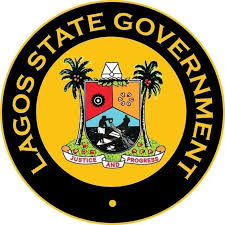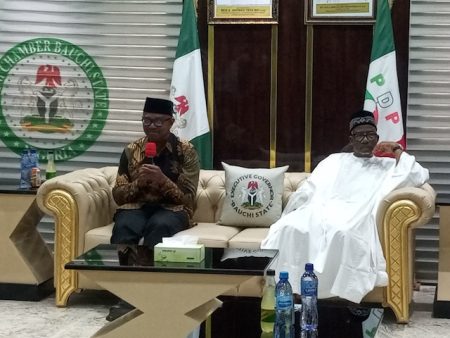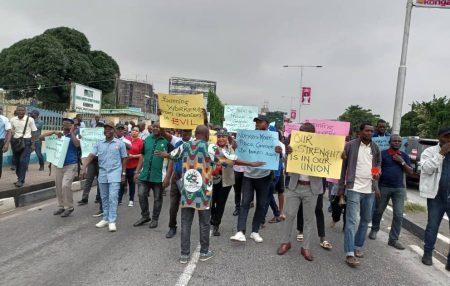The tragic helicopter crash on August 6, 2025, near Sikaman Brofoyedru in Ghana’s Ashanti Region, claimed the lives of eight individuals, including two government ministers, dealing a profound blow to the nation and sparking widespread mourning. The Foundation for Security and Development in Africa (FOSDA), along with its network of partners, including the Ghana Youth Manifesto Coalition (GYMC), regional youth networks, and the National Network of Youth Groups (NNYOG), expressed their deepest condolences to the bereaved families, friends, and the government. The loss resonated deeply with these organizations, given their recent interactions with the deceased ministers, Dr. Ibrahim Murtala Mohammed, the Minister for Environment, Science, and Technology, and Dr. Edward Omane Boamah, the Minister for Defence. Their commitment to national development and youth engagement made their untimely deaths a particularly poignant loss.
The helicopter crash extinguished the lives of eight men who were en route to the launch of the Responsible Cooperative Mining and Skills Development Programme (rCOMSDEP), a government initiative aimed at curbing illegal mining, known locally as “galamsey.” The victims included Alhaji Muniru, Acting Deputy National Security Coordinator; Dr. Samuel Sarpong, Vice Chairman of the National Democratic Congress (NDC); Mr. Samuel Aboagye, a former parliamentary candidate; Sqn Ldr Peter Bafemi Anala; Flying Officer Twum Ampadu; and Sergeant Ernest Addo. Their shared mission to address the complex challenges of illegal mining underscored the significance of their loss and the urgency of finding sustainable solutions to this pressing national issue.
The eight individuals who perished in the crash were united by their dedication to serving the nation, and their commitment to tackling the multifaceted problem of illegal mining. This shared purpose made their deaths a particularly tragic event, highlighting the risks associated with confronting this complex and often dangerous activity. The loss of these individuals represents a significant setback in the ongoing efforts to combat illegal mining and underscores the need for continued dedication and collaboration to address this critical challenge. Their sacrifice serves as a stark reminder of the importance of their mission and the urgent need for effective solutions.
The rCOMSDEP initiative, which the ministers and their entourage were travelling to launch, represented a crucial step in the government’s strategy to combat illegal mining. This program aimed to provide alternative livelihood opportunities and skills development to those engaged in galamsey, offering a pathway towards sustainable and legal economic activities. The launch of rCOMSDEP was a symbol of hope for a future where mining could contribute to national development without the devastating environmental and social consequences associated with illegal practices. The tragic loss of those traveling to inaugurate the program serves as a somber reminder of the stakes involved and the importance of continuing the fight against illegal mining.
Illegal mining, or galamsey, has been a persistent challenge in Ghana, causing widespread environmental damage, including deforestation, water pollution, and land degradation. The practice also poses significant social and economic problems, contributing to conflict, displacement, and loss of livelihoods. The government’s efforts to combat galamsey have been met with varying degrees of success, highlighting the complexity of the issue and the deeply entrenched nature of the illegal mining activities. The rCOMSDEP program represented a renewed commitment to addressing this challenge through a comprehensive approach that focused on providing sustainable alternatives and promoting responsible mining practices.
In the wake of this tragic event, FOSDA called on the government to intensify its efforts to eradicate illegal mining in Ghana, urging a decisive and comprehensive approach to honor the memory of the eight lives lost. This call to action underscores the urgent need for a concerted effort to address the root causes of galamsey and to provide sustainable solutions that protect both the environment and the livelihoods of those involved in the mining sector. The helicopter crash serves as a stark reminder of the human cost of illegal mining and the importance of finding effective and lasting solutions to this complex challenge. The memory of those lost should serve as a catalyst for renewed commitment and action to eradicate illegal mining and build a more sustainable and secure future for Ghana.


![Court Injunction Prevents Police Harassment of [Party Name] National Chairperson](https://westafrican.news/wp-content/uploads/2025/08/Udeze.fw_-300x150.png)



![Court Injunction Prevents Police Harassment of [Party Name] National Chairperson](https://westafrican.news/wp-content/uploads/2025/08/Udeze.fw_-450x225.png)







